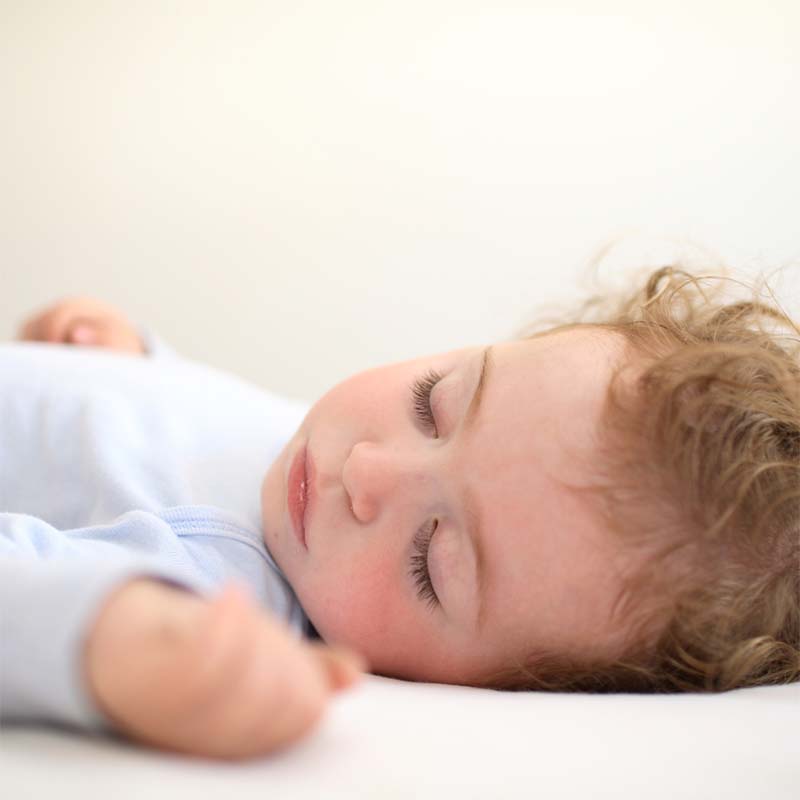
No matter what age we are, all humans rouse or wake during the night. We’re just not always aware of it because our wake ups usually only last a few moments before we go back to sleep. This happens because we’re designed to have full nights of restorative sleep so our bodies and brains can repair, develop, and grow.
This tells us it’s perfectly normal for your baby to rouse or wake up between each stage of sleep or each sleep cycle. Newborns and little babies will wake fully overnight to feed so they can get all the calories they need to develop and grow. After their feed though, they need to go straight back to sleep.
When your baby gets to the age that they’re getting all the calories they need during the day, they’ll no longer need to wake for a feed overnight. This typically happens when they’re around 7 months of age (give or take) and having both milk feeds and solids during the day. They’ll still rouse or wake at different points in the night as we all do, but they should go back to sleep without us realising they were even awake.
It’s at this point that being fully awake multiple times a night becomes biologically unnecessary. And when your little one wakes up fully and stays awake for more than a few moments, they end up not getting the long stretch of restorative sleep they need, which leaves them exhausted, sleep deprived and unable to sleep well when they do get some sleep.
So, if it’s not biologically necessary for humans to be up during the night, why does it even happen? Well, when your little one is waking frequently at night-time and unable to go back to sleep, there’s always a reason.
Sometimes it’s related to their environment, for example, they might be too hot or too cold, or there may be light coming into the room that’s stimulating them.
Sometimes it’s related to their basic needs, like if they’re hungry because they haven’t had enough calories during the day, or if they’re exhausted and in “overdrive” because they haven’t been getting enough total sleep recently.
And sometimes it’s related to HOW they fall asleep each time they go to bed, and whether or not those conditions are still the same when they rouse naturally during the night. For little ones who rely on sleep aids to fall asleep, they’ll need those same sleep aids to get back to sleep after any periods of arousal. Without them, they’ll wake up fully and seek your help.
Remember, all humans function at their best when our body clocks are aligned with day and night. When it’s night-time, our bodies and brains need sleep, sleep and more sleep. If night-time for you and your older baby, toddler, child, tween or teen looks like being up and playing, cuddling, watching TV, moving around, and having snacks or even meals, your bodies aren’t getting the chance to work in the healthy way they were designed to, and your child needs your help to resolve this.
The information in this video relates to healthy babies and children with no undiagnosed, untreated medical issues or concerns. If you have any concerns about the health of the baby or child in your care, please see their GP or paediatrician.
For more sensible, straightforward, safe advice and resources on getting your family the sleep you all deserve, explore my website – sleepbysteph.com.au